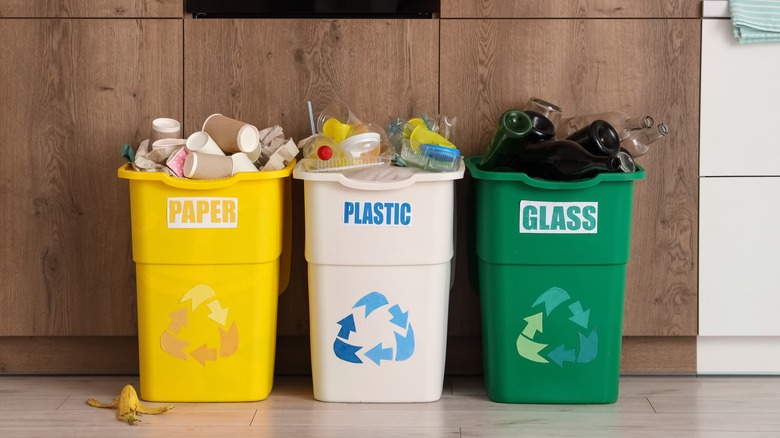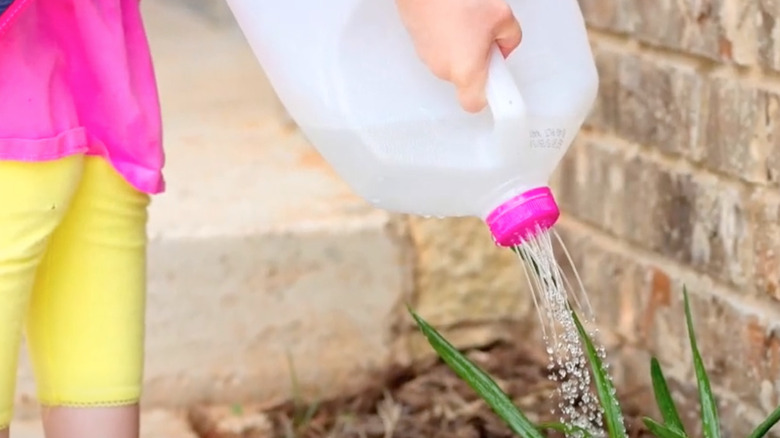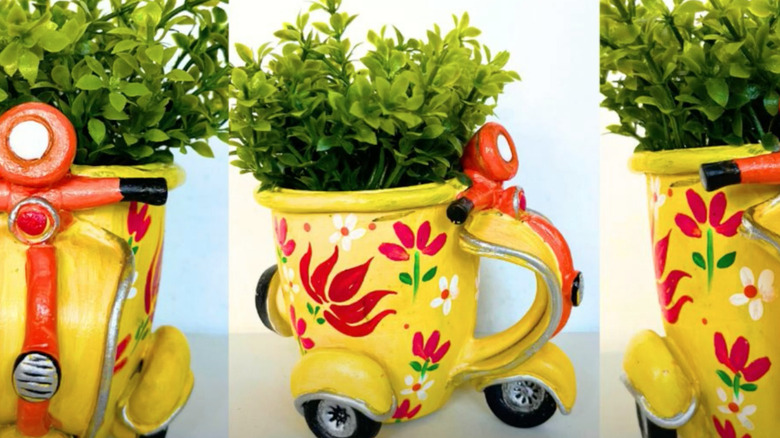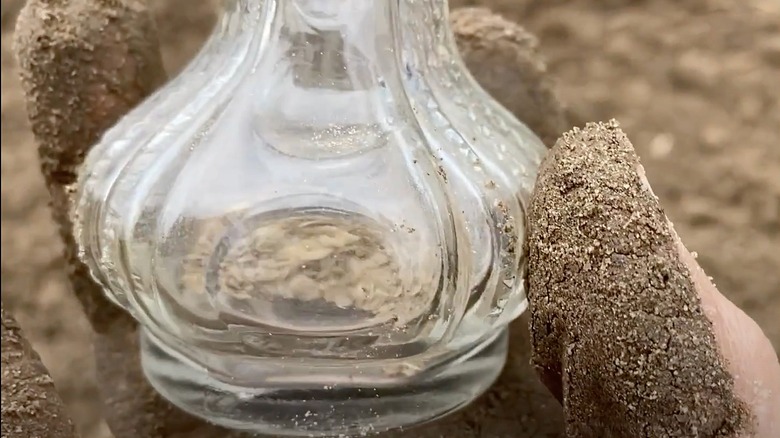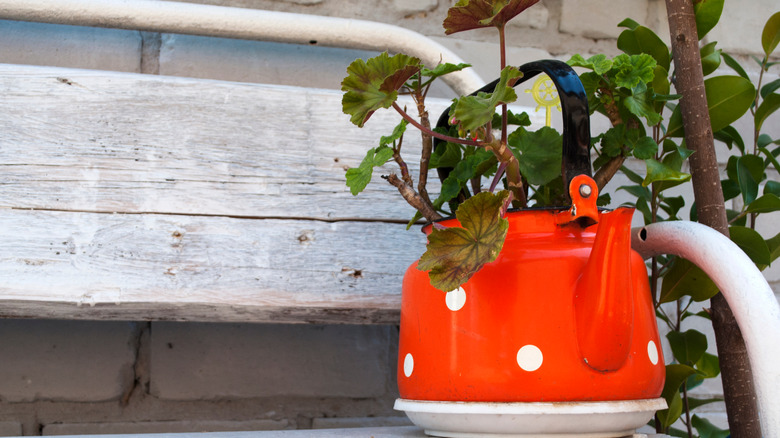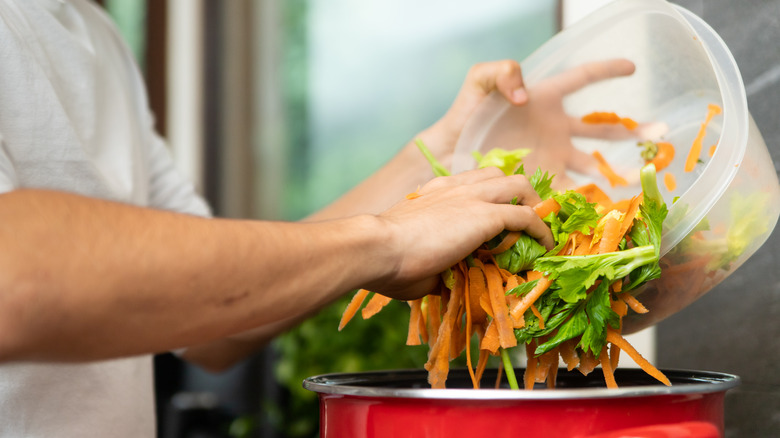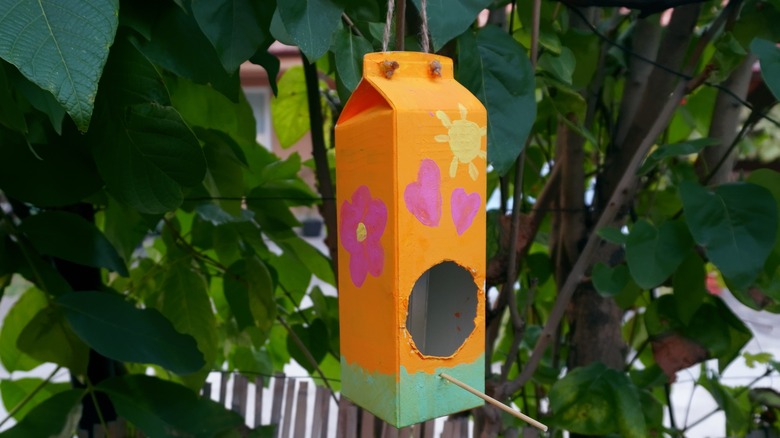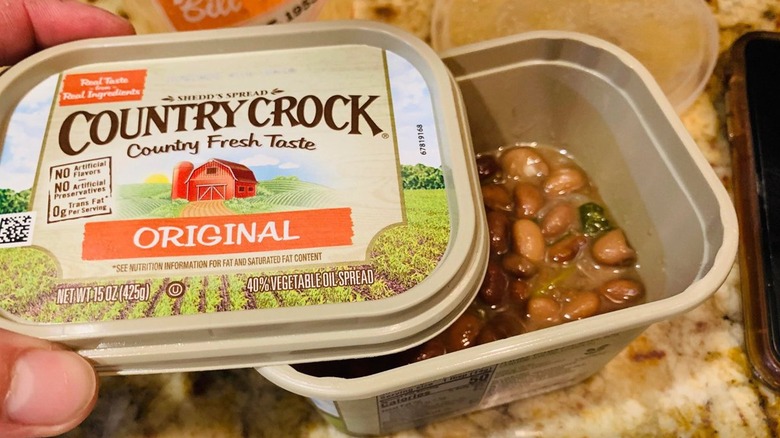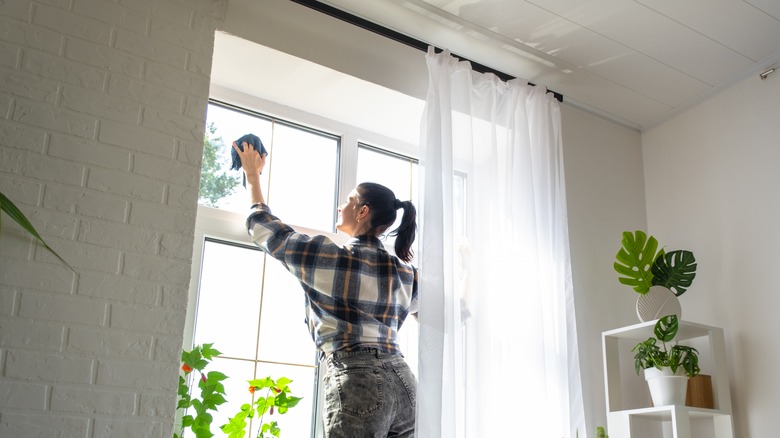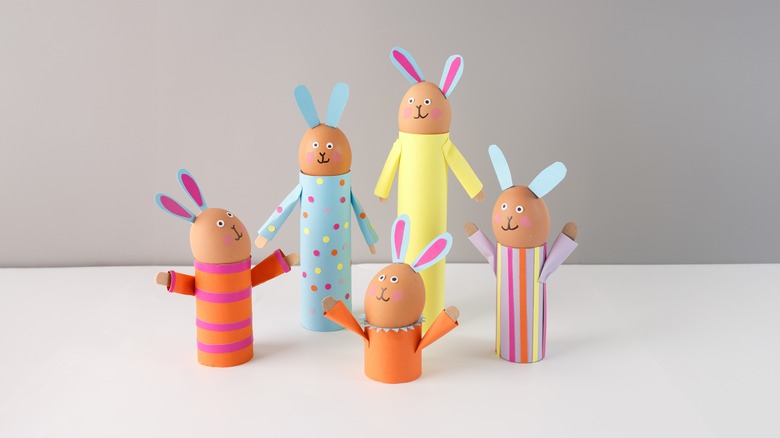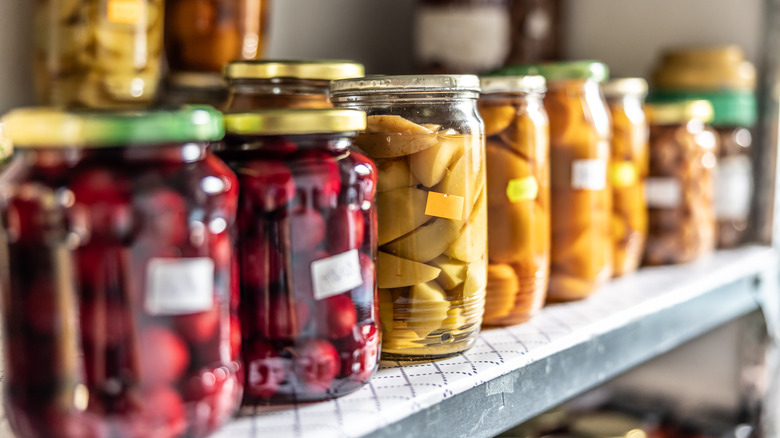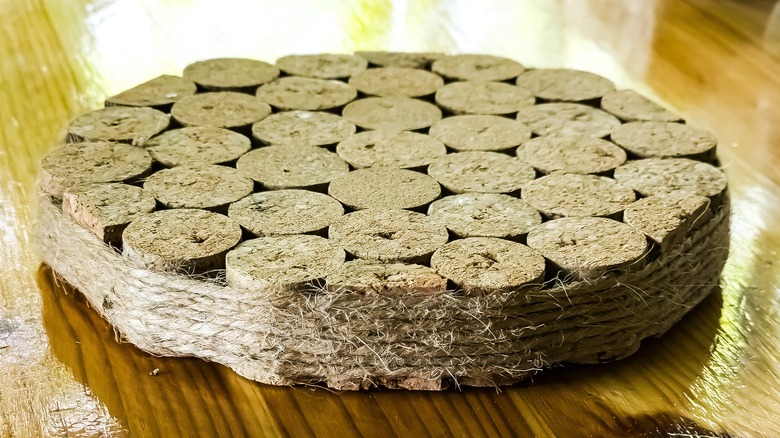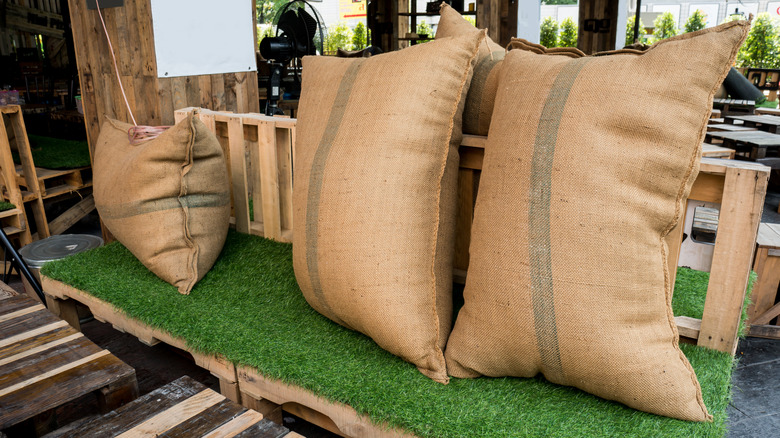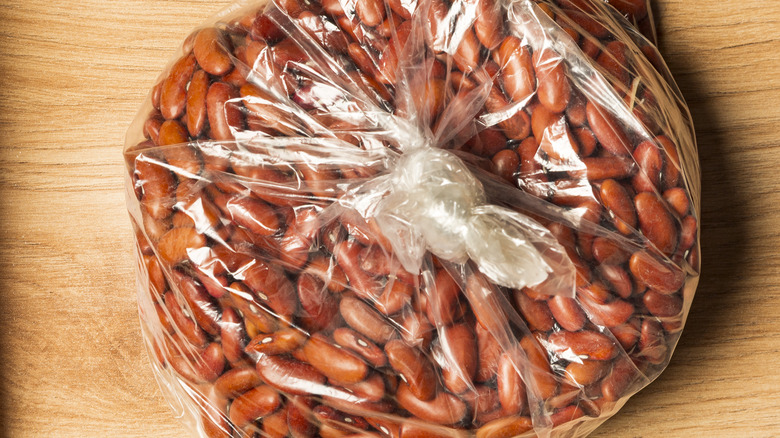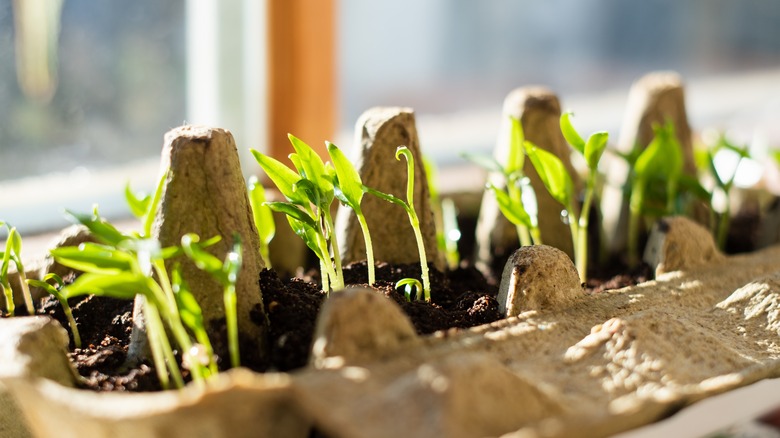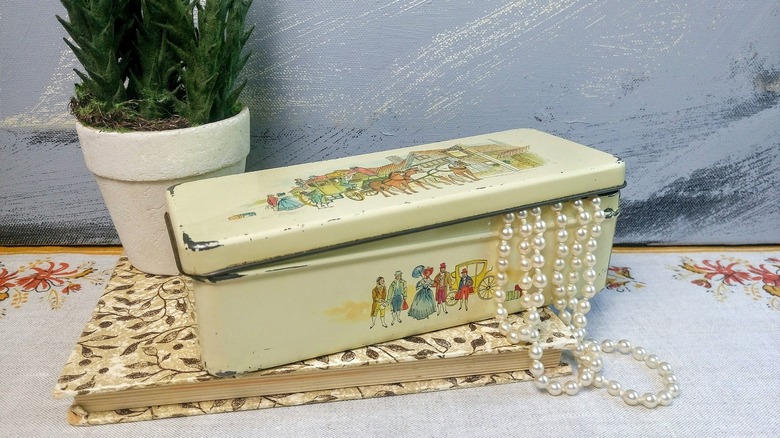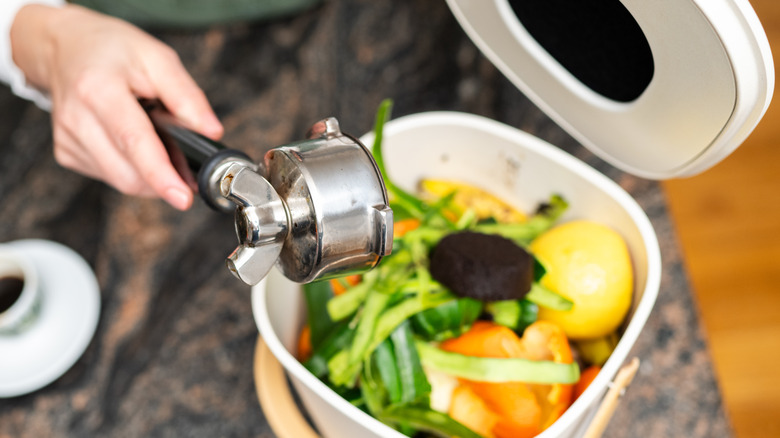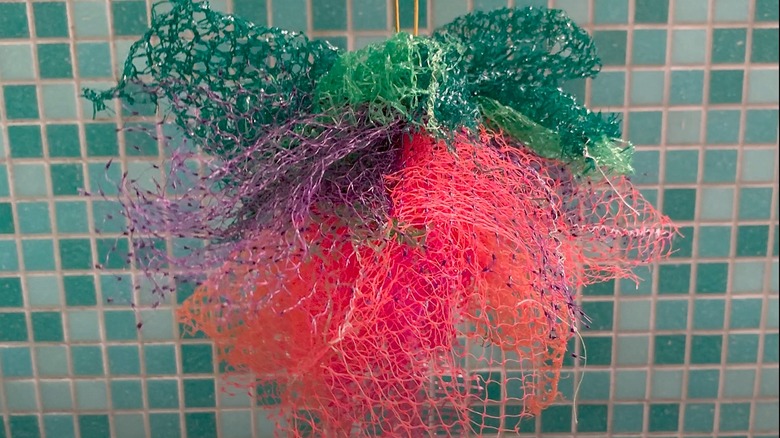12 Kitchen Items You Can Reuse In Your Home To Reduce Waste
We may receive a commission on purchases made from links.
It has been said countless times that the kitchen is the heart of the home. Since the kitchen is such a busy space, it follows that numerous items come and go from time to time, either because they have gotten worn out or need to be recycled. Sadly, many people simply throw away various kitchen items like plastic containers or chipped dishes, not seeing the purpose in hanging onto them indefinitely. However, if you have found yourself wanting to repurpose items in your kitchen rather than generate more waste, the good news is that there are many ways to do just that.
By looking around your kitchen, you're likely to spot more than a few items that you can imagine being reused. That old tea tin, an empty milk jug, or an empty egg carton can all be repurposed as containers, watering cans, or crafting materials. The list goes on, however, to include even more obscure items like an old kitchen towel, broken coffee mugs, and produce scraps. All it takes is a little imagination and resourcefulness to make your kitchen more sustainable, and the myriad of items you can reuse goes to show it.
Milk jugs
Although these nondescript plastic jugs tend to be thrown away or dumped into the recycling bin when they're empty, there are actually numerous ways to reuse milk jugs around the house. One popular idea includes using it as a watering can, perfect for when you're in a pinch and need something quick and functional. Just drill a few small holes into the lid, fill with water, and screw the lid on tightly.
Broken coffee mugs
A broken coffee mug might seem like it's no longer good for anything (after all, it's not gonna be useful for holding your morning cup of joe anymore), but if you have a little imagination, it can become a flowerpot in your windowsill, a container to hold chip clips, or a pencil cup. If your mug has any sharp edges, however, it's probably not worth keeping as it could injure someone.
Salt and pepper shakers
If you've recently updated some of your kitchen inventory and find yourself with an extra set of salt and pepper shakers, you can put them to use in your garden when it's planting season. Small seeds can be exceedingly difficult to plant, as you could spill an entire envelope without meaning to. Instead, empty your old shakers of their original contents and then pour your tiny seeds in them. You'll find that it's easier to control the distribution of the seeds this way.
Teapots
An old teakettle or teapot might not be something that you use regularly in your kitchen; if you're trying to minimize your cabinets' contents perhaps it's time to upcycle your tea brewing apparatus. Teapots and teakettles can make a beautiful and eclectic flowerpot — leave yours in the kitchen for some charming decor, or put it out in the garden for a whimsical look.
Produce scraps
You might be used to simply throwing away your onion skins, potato peels, orange peels, and apple cores, but all of these food waste items can be reused if you know how. Convert this waste into nutrient-boosting soil for your garden by composting them. There are several kitchen scraps you can reuse in the garden as a natural fertilizer.
Juice cartons
Before you chuck that empty OJ carton into the recycling bin, consider converting it into a birdhouse or bird feeder. You can find countless ideas online for this easy and avian-friendly craft — just remember to position it far enough away from your home to not scare away the birds and fill it with bird-friendly snacks. If you're wanting another option for this empty vessel, learn how an empty juice or milk carton can instantly organize your pantry cabinets.
Margarine containers
If you have kids in school or even if you take lunches with you to work, an empty and cleaned out margarine container can be the perfect to-go food carrier. Use it especially for snacks like grapes, apple slices, pretzels, or crackers and cheese. You can easily reuse the container time and time again until it wears out, saving you money on pricier sealing food containers.
Kitchen towels
An old kitchen towel might seem like it's at the end of its life, but the reality is that this versatile rag can be used in a number of ways other than just drying dishes and counters. You can use it as a cloth to clean up your pet's feeding station, turn it into a rag for scrubbing the patio furniture, or even just use it for washing your windows and baseboards.
Paper towel tubes
If you have been in the habit of tossing paper towel tubes, now is the time to stop. These sturdy cylinders are perfect for countless crafts for your kids, and it doesn't cost anything to keep them on hand for creative projects on a rainy day. Another brilliant way to repurpose a paper towel tube for storage is to use it for linens. Roll a freshly washed and ironed vintage napkin around the paper towel tube where it will stay in presentable condition when you need it.
Glass jars
Olive jars, applesauce jars, pasta sauce jars, and more different types of glass jars you can upcycle are readily available in the kitchen. If you're tired of purchasing plastic containers for storing dry and wet ingredients alike, why not try repurposing all those jars you are able to reuse? You'll find that they are usually easy to clean out and offer an airtight seal in many cases, keeping the contents fresh and your pantry looking nicely organized.
Wine corks
Wine corks are little items that can seem to accumulate with no end goal in mind. Fortunately, instead of simply throwing them out, there are many ways to repurpose wine corks around the house. Use them to fix your wobbly furniture or create unique decor from coasters to display pieces for your kitchen, where the corks get to show off their natural beauty.
Burlap coffee bags
A burlap coffee bag might seem alluring when you purchased it filled with specialty beans, but now that it's empty, what are you supposed to do with it? Truth be told, there are a number of ways to reuse these bags in projects around the house. Convert yours into a pillowcase that will help bring some unique style to an outdoor sitting space. Another option is to create a tote bag with your coffee bag as the outer, visible portion.
Bread bags
If you consume bread on a regular basis, you likely have access to their plastic bags with some frequency. While you could simply throw them away, the reality is that they can be used at home. In a pinch, you can use it as a garbage bag for a dirty diaper, or simply use it to hold food items like an opened container of dry beans. You can even reuse it as a sandwich bag, cutting down on your number of plastic zip-close sandwich bags.
Egg cartons
An empty egg carton can be used in so many ways it can be difficult to fathom. Use them to start seedlings for your garden, set your kids up with a fun sorting activity in which the individual compartments can hold colorful items, or utilize the cardboard in your composting bin. While plastic egg cartons are generally safe to use, the cardboard ones can contain bacteria from the eggs, so it might be best to simply recycle those.
Tea tins
Tea tins are durable, compact, and often visually appealing, making them a powerhouse of reuse potential. Use an old tea tin as organization for jewelry or even items in your bathroom drawer (think flossers or nail trimming tools). You can also use them for storage of spice packets that have been opened; simply seal with a clip first to keep the flavors locked in. Collect numerous tea tins to keep your cabinets organized even better — the squared shape of some means that no space will be wasted.
Coffee grounds
Coffee grounds might be plentiful in your kitchen, in which case you can put them to work as a nutrient booster for your garden's soil. Give them to a number of indoor household plants to help them thrive, including African violets, jade plants, and nasturtiums. Just remember to double check your plant's specifics before dumping coffee grounds in the soil, as success will depend on the plant's required conditions.
Produce bags
Don't throw out mesh produce bags when there are many brilliant ways to reuse them. You can convert these seemingly single-use bags into a plethora of creative items, ranging from a container for bath toys or gardening tools to a one-of-a-kind shower pouf. When the time comes to dispose of them, feel good knowing that you gave them a second life they wouldn't have otherwise had.
